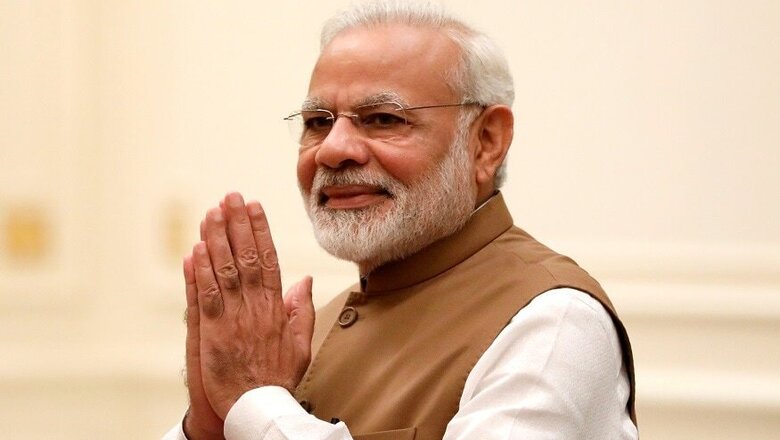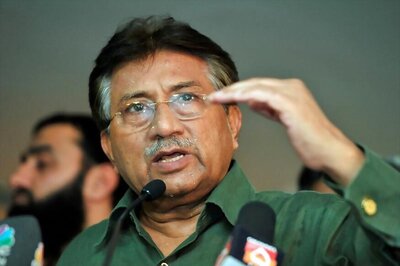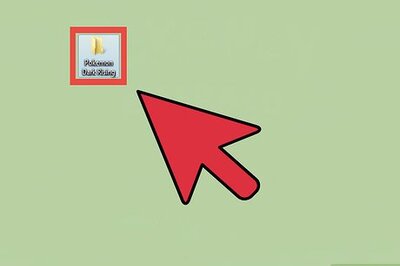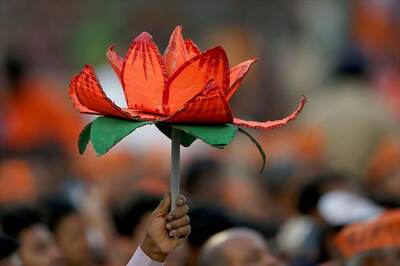
views
The Union Cabinet today approved raising the basic pay of Gramin Dak Sevaks (GDS) by over three-fold to up to Rs 14,500 per month, effective January 1, 2016.
The arrears after the revised wages will be paid in one instalment for the period from January 1, 2016 till the date of implementation.
"Gramin Dak Sevaks GDS who were getting Rs 2,295 per month will get Rs 10,000. Those who were getting Rs 2,745 will get Rs 12,000. GDS who were paid Rs 4,115 will get Rs 14,500 per month," Telecom Minister Manoj Sinha told reporters after the Cabinet meeting, chaired by Prime Minister Narendra Modi.
Sinha further said the remuneration paid to GDS was effectively not enough to meet their expenses and this pay hike decision will bring a big change in their lives.
The revision in the wage structure would entail an estimated expenditure of Rs 1,257.75 crore in 2018-19. This includes non-recurring expenditure of Rs 860.95 crore and recurring expenditure of Rs 396.80 crore in the current fiscal year.
"The face of India Post is changing. We have created parcel directorate and India Post Payments Bank is going to start. In coming days, a separate insurance company will work under postal department. GDS will be our carriers," Sinha said.
Though the basic pay has been hiked by over three-fold, there is around 56 per cent average increase of total wages across the board.
The government will pay dearness allowance of 7 per cent on the basic pay as per 7th Central Pay Commission instead of 142 per cent paid at present.
There are 2.6 lakh GDS who work for around 1.3 lakh rural post offices in the country. GDS work in shift of 3 hours, 3.5 hours, 4 hours, 4.5 hours and 5 hours and remain in service till the age of 65 years.
Earlier, there were 11 slabs which have been reduced to three categories and now there will be two designations only- Branch Post Master (BPM) and assistant branch post master (ABPM). Those who are supposed to get Rs 12,000 pay will work in shift of 4 hours, while level 2 GDS -- whose basic pay is increased to Rs 14,500 -- will have to work for 5 hours.
Gramin dak sevaks have been on strike since last few days over demand for recommendation of a committee formed under postal board member Kamlesh Chandra. The minister appealed to them to return to work following the Cabinet decision.
"The revision in wages is in line with recommendation of committee led by postal board member Kamlesh Chandra and it was accepted under my chairmanship. Now, compensatory appointment will also be allowed for dependents of GDS," Sinha said.
He further said that annual hike of 3 per cent has also been decided as per the request of GDS, which will be granted every year either on January 1 or July 1.
"Government has introduced a new allowance in the name of risk and hardship allowance which was not provided to them earlier. Besides this, allowances -- office maintenance allowance, combined duty allowance, cash conveyance charges, cycle maintenance allowance, boat allowance and fixed stationery charges have been hiked," Sinha said.
The risk and hardship allowance of Rs 500 per month will be paid to GDS.
The composite allowance has been increased to Rs 500 from Rs 100 paid earlier, boat allowance to Rs 115 from Rs 50 and combined duty allowance to minimum of Rs 1,170 and maximum of Rs 2,340 from Rs 500 per month.
The minimum wage of GDS has been increased to Rs 10,000 per month and maximum to Rs 35,480 per month.




















Comments
0 comment